FCRS provides access to an excellent education for marginalised children in Conakry, Guinea
FCRS Trustees and volunteers use their professional skills in teaching, education management, administration, child protection, and business, to provide expert mentoring and capacity building, supporting their partners in Guinea. We ensure that even the most marginalised children can access education that is child centred, progressive and of an excellent quality.
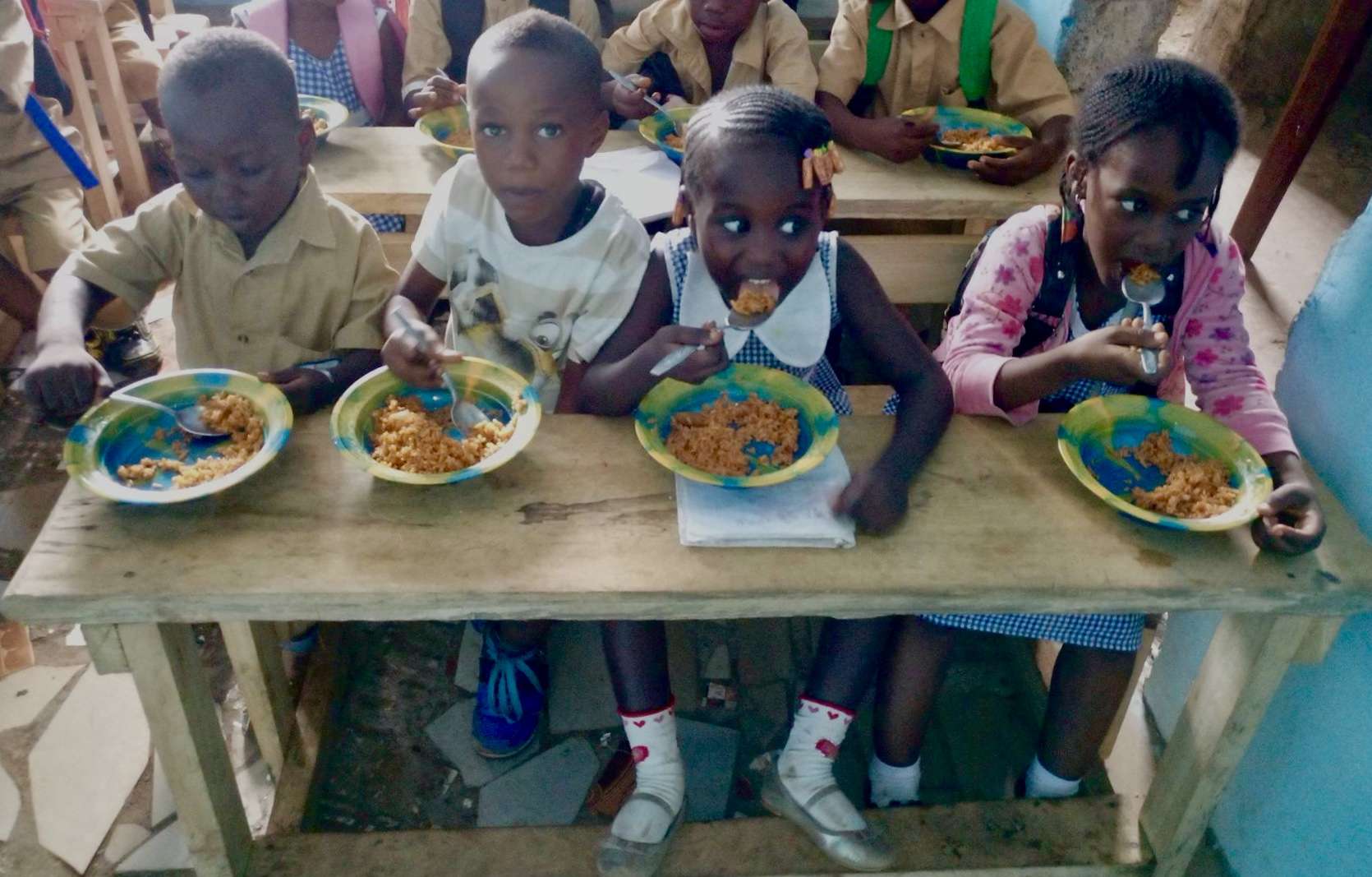
School feeding
FCRS funding mean CRS students are not hungry in school.
FCRS support a breakfast club and canteen by paying the wages of the cooks, regularly renewing their equipment providing refridgeration for food supplies. We also fund the cooking of a simple communal meal of rice and fish for the whole school 8 times a month.
The sharing of a free meal is at the center of the school community, as well keeping students in school whose parent struggle to pay for food and are tempted to remove their children so they can work to earn the money for their evening meal.
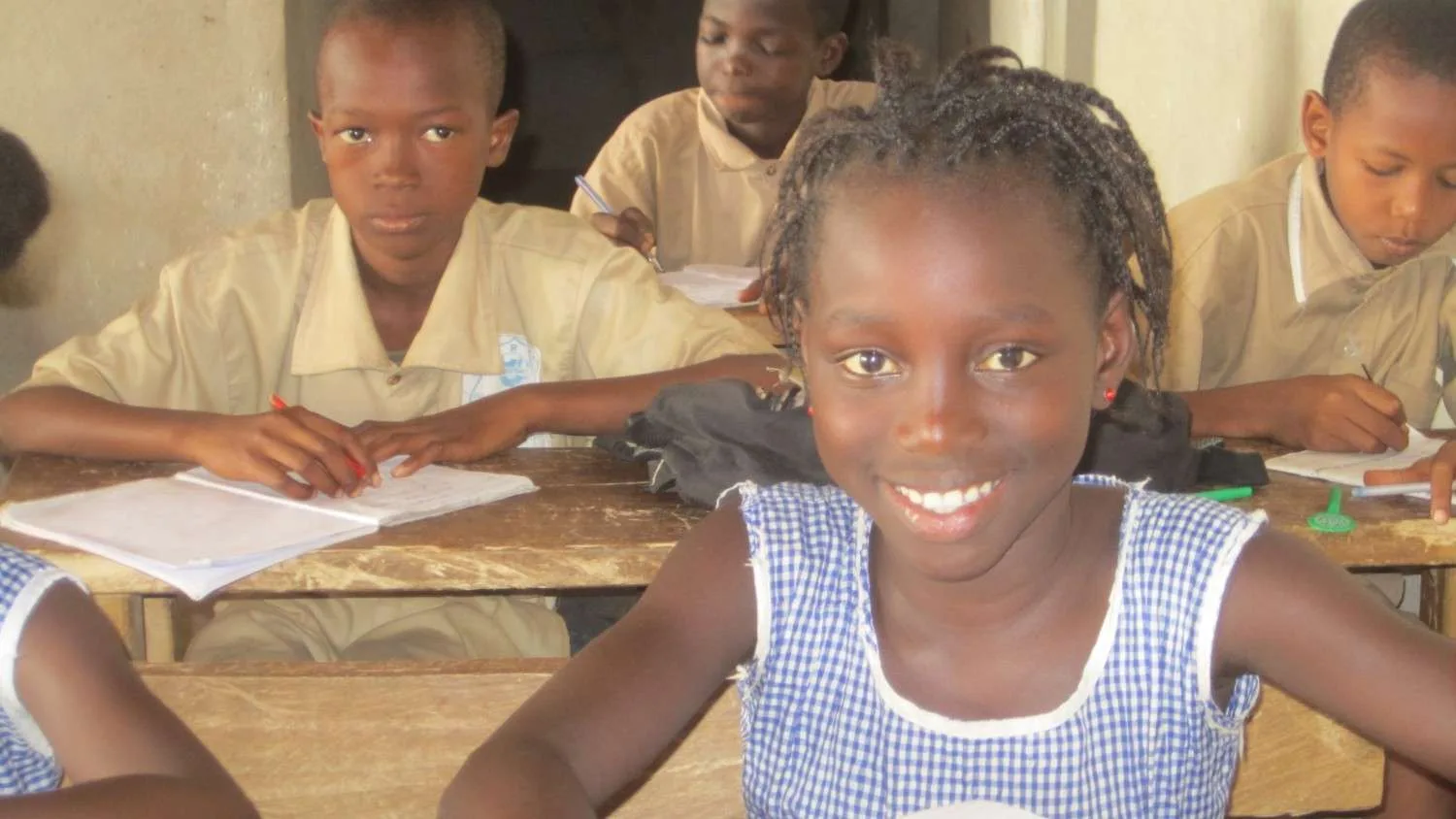
Scholarships
FCRS fund 100 scholarships each years providing free education for vulnerable students.
85% of children 7-14 in Guinea are working. Girls are often subjected to domestic work and commercial sexual exploitation and boys are subjected to forced labor in gold and diamond mines. Parents unable to care for their children send them to live with relatives or strangers where they are expected to provide food, shelter, and schooling for the children in exchange for housework and are often forced to beg.
Source US Department of Labor
(www.dol.gov/agencies/ilab/resources/reports/child-labor/guinea)
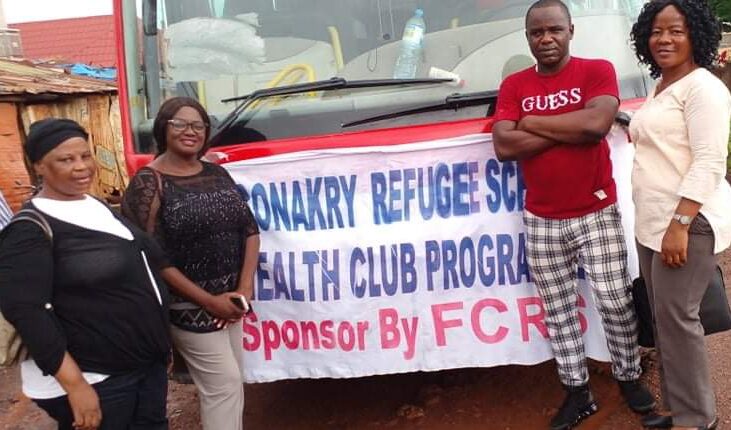
Personal and Health Education
FCRS support the employment of a school nurse and a well equiped sick room.
Madam Korto is a qualified nurse and has many years of health education experience. The students learn about hygiene, disease and good nutrition. Madam Korto teaches them the importance of hand washing and how to do this well. When not teaching she is available in her office to care for students and staff who fall ill. On top of this she set up and runs a very popuar Health Club where students discuss issues such as FGM, easy marriage and domestic violence, sharing their knowledge through dramas performed for the school.
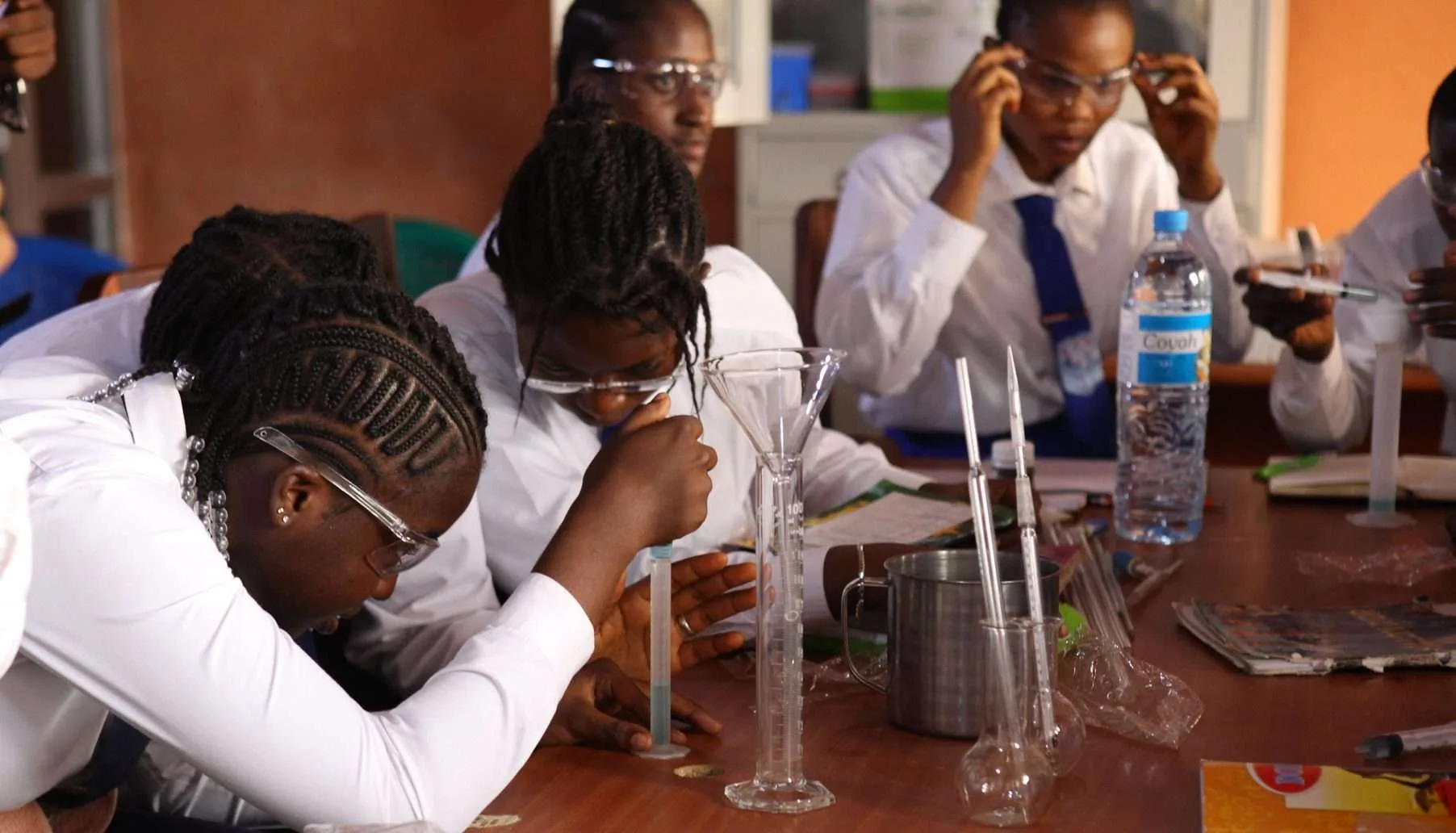
An Improved educational environment
FCRS have funded the provision of a science lab, IT suite, library , reading room and staff room.
In 2022 FCRS obtained a grant from The Merck Family Foundation to support CRS in moving to a new purpose designed building with flushing toilets on each floor, a secure yard and plenty of space for the students to learn. This grant enabled CRS to build a well equiped science lab that has revolutionised the teaching of science at CRS by giving students access to practical science sessions. Since then we have continued to upgrade the facilities, Tiling floors, installing WIFI and improving the cooking facilies.
Although Guinea is French speaking and there are 9+ home languages spoken by students lessons at CRS are taught in English.
Students study the West African Exam Council curriculum progressing from grade to grade when they pass their exams.
External exams are taken in Grade 6, 9 and 12
At Kindergarten the curriculum comprises:
-
Number work
-
Social skills
-
Reading readiness
-
Motor skills including writing writing
-
Readiness
-
Drawing
At elementary level there are classes in:
-
Reading
-
Writing: Spelling and Grammar and composition
-
General Science
-
Health Education with Physical Health Education
-
Social Studies
-
Students take the BECE exam with the West African Exam Council
In Junior High students study for the West African Exam Council NPSE qualification
-
English language (grammar and Comprehension)
-
Social studiesMathematics
-
General science
-
Agricultural science
-
Physical and Health Education
Students choose to follow either a science, arts or commercial streams taking 8 subjects in the West African Exam Council exams .
In all streams the students take English Language, Mathematics, French, Economics and Biology.
The science stream offers Chemistry, Physics and IT
The art stream studies History, Literature in English, Government.
The commercial stream offers Business, Accounting and Business Management.
%
Pass rate at Grade 6 West African Exam Council exams
%
Pass rate in Grade 9 West African Exam Council exams
My daughter Kemah loves science and dreamed of being a doctor. The teaching she received in science at CRS enabled her to do so well in her exams she was offered a place to study medicine in French at a Guinean university. Because she had leant French at CRS and had learnt to be confident and reach for her dreams she was able to take up the place and has just passed her first year with flying clolours.
The Context: Education in Guinea
Guinea is one of the least developed nations in the world ranking 179th out of 189 countries and 33rd out of 51 African countries in progress in development goals particularly struggling with poverty, hunger, health, education, and gender equality.
Guinea is facing a learning crisis. Learning poverty is estimated by the World Bank UNESCO and other organisations at 83 percent. This is in part because out-of-school children are unlikely to achieve reading proficiency. But it mostly results from the fact that 98 percent of children enrolled in primary school could be learning poor.
Female literacy rates are alarmingly low
33.8% of females being literate compared with 48.7% of males.
Similarly only 30.8% of girls attend secondary school compared to 39.5% of boys.
These challenges are exacerbated by extreme gender inequality, which is a significant contributing factor to the poor poverty and health outcomes in the country, according to UNICEF.
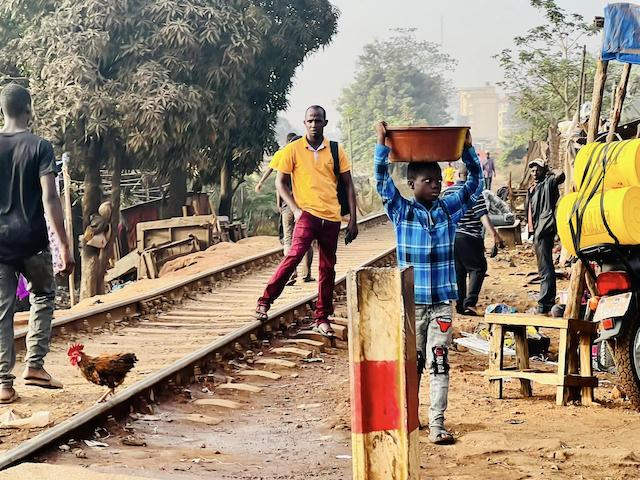
- Female literacy 33.8%
- Male Literacy 48.7%
- Female secondary attendance 30.8%
- Male secondary attendance 39.5%
Guinea has the second-highest rate of female genital mutilation (FGM) in Africa and early marriage is also prevalent
92% girls affected between 15 to 19
17% girls are married by the age of 15
- FGM girls 92%
- FGM in female CRS students 72%
- Girls married before 18 years 47%
- CRS students married before 18 1%
- Girls marriaged before 15 years 17%
- CRS students married before 15 0%
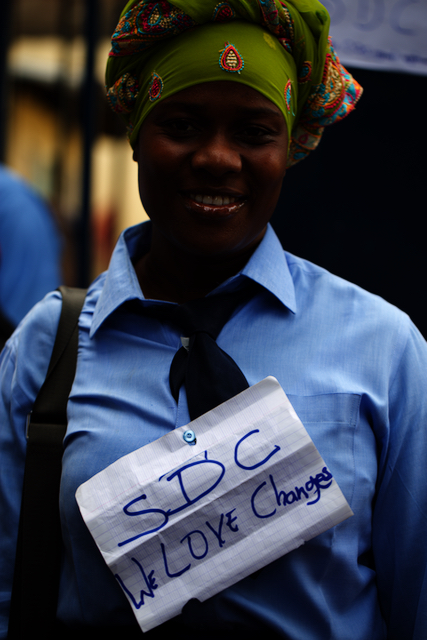
This disparity is not just a matter of fairness but also affects poverty alleviation and community development.
Educating girls has a positive impact on economies, job creation, and community stability. Furthermore, educated girls tend to have better health outcomes for themselves and their families. They are less likely to marry at a young age, contract HIV, and more likely to have healthier and educated children. Each additional year of education for a girl contributes to reducing infant mortality and child marriage rates.
Investing in girls’ education also has environmental benefits. The Brookings Institution identifies secondary schooling for girls as a cost-effective and impactful investment in combating climate change.
However, at Conakry Refugee School, girls face various challenges in accessing education. Many struggle to afford school fees and exam costs, while inadequate hygiene facilities pose difficulties for girls during puberty. The cost of menstrual hygiene supplies often prevents them from attending school regularly. Additionally, poverty-stricken families may resort to marrying off their daughters, seeing it as their only option to alleviate financial burdens and avoid societal stigma associated with unwed pregnancies.
